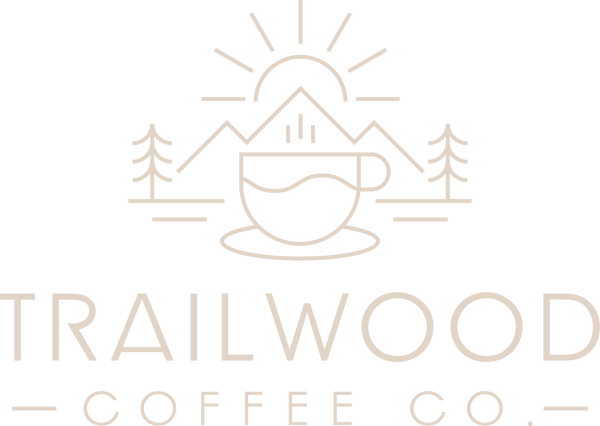Our Coffee Farms
-
Brazil
GRADE: SSFC 17/18
REGION: Sul de Minas
ALTITUDE: 950-1,100 M
PROCESSING: Natural
VARIETALS: Mundo Novo, Catuai, Icatu, and Bourbon
DETAILS: This coffee is from small producers in the rolling hills of Sul De Mines. The mild climate, gentle rainfall, and micro climate brings out the best in the trees. The farms are small to medium in size, 10-150 hectares being farmed for generations. -
Costa Rica
GRADE:SHB, EP
REGION:Perez Zeledon Region in Southern Costa Rica
ALTITUDE:1,400 to 1,900 M
PROCESS:Washed and Sun Dried
VARIETAL:Catuai, and Caturra
CERTIFICATION:Conventional
DETAILS:CoopeAgri is a community of farmers from small communities, villages, and even single-family farms. CoopeAgri focuses on the well-being of members, their families, and communities. Medical care, agronomy support and outreach, and a café showcase are available to COOP members. The farmers use fertilizer made by the COOP. -
Peru
GRADE:Grade 1, SHG, EP
REGION:Amazonas
ALTITUDE:1,600-1,800 M
PROCESS:Washed
VARIETALS:Typica, Castillo, Bourbon, and Catimor
DETAILS:Located in northern Peru in the Amazonian Andes, this coop began with just 35 small farmers in 2003. The Asociacion de Productores Cafetaleros Juan Marco El Palto (JUMARP) is also known as simply "El Palto." There are 40 women of the current 189 coop members, with approximately 550 hectares of organic and Fair Trade Certified coffee in production. Like their male counterparts, female members are represented on the El Palto Coop Board of Directors, whose mission it is to increase production and profitability in specialty coffee to increase each member family’s income. -
Colombia
GRADE:Excelso, EP
REGION:Tolima
ALTITUDE:1,500-2,100 M
PROCESS:Washed and Sun Dried
VARIETALS:Caturra, Castillo, and Tipica
DETAILS:A small group of farmers formed Cafe del Macizo in 2003 in the countryside municipality of Planadas, in the state of Tolima. With 59 lifetime growers, the group shares decades of knowledge and resources with each other to product high quality coffee. Located in the foothills of Cordillera Central, the beautiful mountains shape the lush landscape. -
Kenya
GRADE:AB
REGION:Othaya, Nyeri County
ALTITUDE:1,700-1,890 M
PROCESS:Fully Washed and Sun Dried on Raised Beds
VARIETALS:SL28, SL34, Ruiru 11, and Batian
CERTIFICATION:Conventional
DETAILS:Othaya Farmer Cooperative Society is one of key member societies of the Kenya Cooperative Coffee Exporters (KCCE) organization. KCCE is an historic organization of almost 4,000 individual cooperatives. The group was formed in 2009, with the express goal of managing marketing and exporting operations cooperatively, as opposed to contractually with third parties. This lot is processed in Gauge.
The Gatugi Factory has 500 members actively harvesting and delivering to the processing center. Gatugi ferments for 27-35 hours depending on ambient conditions. After fermentation, the parchment is rinsed and the water replenished, and the clean parchment soaks for an additional 12 hours, after which it is sorted by density and brought to the tables to dry, typically for two weeks. After drying is complete the coffee is stored on site and eventually delivered to the Othaya dry mill for grading and a final density sort. The established milling and sorting by grade, or bean size, is a longstanding tradition and positions Kenya coffees well for roasters, by tightly controlling the physical preparation and creating a diversity of profiles from a single processing batch. hover around 323,000 kgs, meaning the average member of Gatugi is farming enough coffee fruit for roughly two 60kg bags of export-able green. -
Bali
GROWER:Producers organized through Subak Abian (SA) a traditional structure of farmer organization in upland Bali
REGION:Kintamani Highlands of Central Bali, Indonesia
ALTITUDE:1200-1600 MASL
HARVEST:May-October
SOIL:Volcanic Loam
PROCESS:Hand-picked, Wet-hulled, Two-step Sun Dried on Raised Beds
VARIETALS:Bourbon, (S795 & USDA 762) Typica, and Catimor
DETAILS:Bali Blue Moon is a staple named after the hallmark bluish hue of the bean produced from the wet-hulling process called Giling Basah in the Indonesian language. The bulk of Bali’s coffee production comes from small family-owned farms where each producer uses a few acres to cultivate coffee along with citrus trees in the volcanic soils of Mount Agung’s Kintamani highlands. They carefully sort their harvested cherries before depulping and fermenting overnight with their own micro-mills. Then the coffee is washed and laid out on patios to shed the excess water from the coffee parchment. Next the coffee takes a detour from the conventional path of processing in other origins, wherein, the coffee parchment is removed while the coffee still has a high moisture content. This wet-hulling process or Giling Basah leaves the coffee bean exposed while drying on patios to a moisture percentage acceptable for export and gives the beans their distinct bluish color.
Balinese producers continue to maintain a traditional rural lifestyle organized around a Subak Abian, which is a reference to the ecologically sustainable irrigation systems developed more than 1,000 years ago by Hindu priests who practice Tri Hita Karana (the three sources of prosperity), a philosophy focused on the harmonization between the environment, humans and God. These traditions are followed in coffee cultivation, which means pesticides and synthetic fertilizers are never used.
